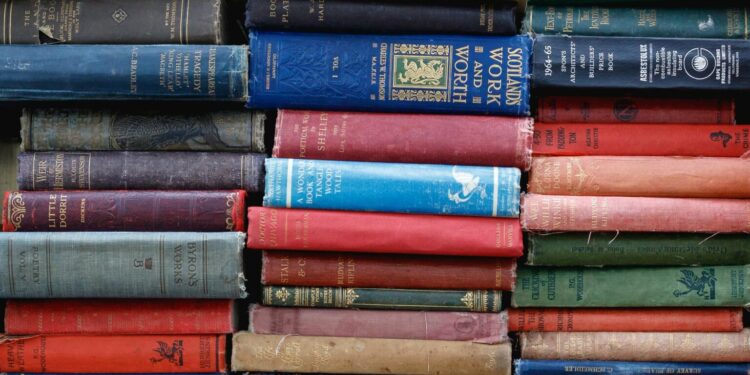Trigger warnings, edits, and sensitivity readers are eroding our literary past. Roald Dahl, Ian Fleming, and Agatha Christie are just some of the names whose works have been debased by eraser-wielding ideologues. Writing in Spiked, Philip Kiszely proposes a solution to safeguard our vanishing culture: create personal libraries and collect original works.
Our literary past is under assault. Trigger warnings are being slapped on reissued classics. Long-dead writers are being called out for offending contemporary sensibilities. And sensitivity readers are relentlessly filleting books of anything that upsets their identitarian worldview.
In February, the PC ghouls went for Roald Dahl, making ‘hundreds of changes’ to his beloved children’s books. Then, just days later, it emerged they had sanded off the edges of Ian Fleming’s James Bond novels.
It didn’t stop there. In March, it was reported that Agatha Christie’s novels had been reworked to remove offensive language, such as insults and references to ethnicity. Two months later, Dr Emily Zobel Marshall, reader in postcolonial studies at Leeds Beckett University, called out Beatrix Potter’s Peter Rabbit children’s books for cultural appropriation. And then, a couple of weeks ago, the cancel-culture vultures circled P.G. Wodehouse for the second time in about two months, before announcing that all new editions of his novels were to be given a trigger warning due to their ‘outdated language, themes or characterisations’.
Perhaps the publishing industry as we know it is too far gone to be saved. Like many other sectors and institutions, it appears to have lost a sense of its core purpose. It is supposed to nurture and celebrate creativity. But instead it’s trying to ensure its back catalogue conforms to today’s right-on sensibilities.
There is something especially disturbing about the rewriting of literature, be it classic, popular or otherwise. Doing so alters the record of experience, it adjusts the collective memory. It is, in short, deranging. A set of dubious values, built on the shifting sands of identity politics, is being allowed to eat away at our shared understanding of time and tradition.
So what can we do to preserve that which is in danger of being lost? It’s not an easy question to answer. Looking to the public sector for help conserving our cultural heritage seems futile – libraries, country houses, museums and galleries increasingly seem to loathe their own collections. And our shared past is too important, too precious, too old to be entrusted to quangos, arms-length organisations and a captured heritage industry.
However, there is something we can all do to resist this assault on our literary past. And that’s to start creating our own personal libraries.
It’s something I’ve been doing for a while. I used to collect first editions because I enjoyed owning literary artefacts. It was a very personal kind of pleasure, albeit linked to my professional life as a cultural historian. Particularly fascinating to me is the crime, detective and espionage fiction of the long postwar era. The physical presence of this work is fast disappearing.
Worth reading in full.












To join in with the discussion please make a donation to The Daily Sceptic.
Profanity and abuse will be removed and may lead to a permanent ban.